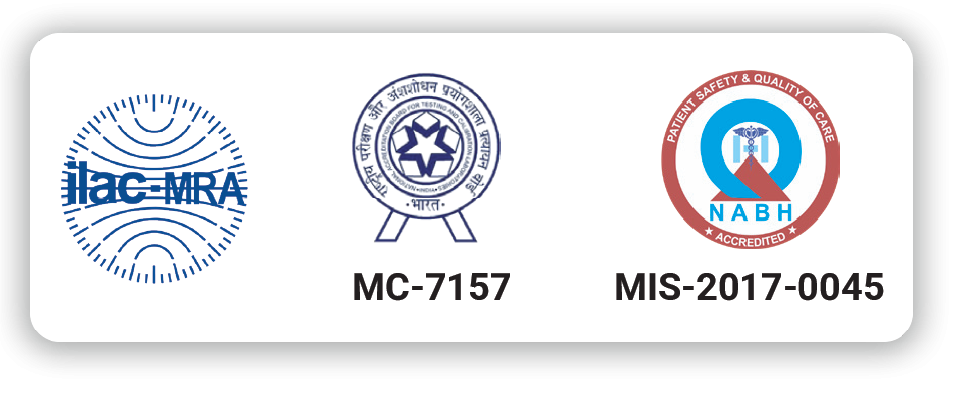What can be tested with Urine Tests for Diabetes?
Our body becomes unable to produce enough insulin, use it properly, or no insulin at all when we have diabetes. Hence, it causes a spike in blood sugar levels. Insulin helps your body cells to absorb blood sugar and produce energy. The pancreas produces insulin at higher levels after having meals. Diabetes is categorized into two types – type 1 diabetes and type 2 diabetes.
When the immune system kills the cells that produce insulin in your pancreas, this condition is known as type 1 diabetes. It develops quickly and is diagnosed mostly in childhood.
When cells in your body can no longer sustain insulin, this condition is known as type-2 diabetes. It develops eventually and is widely associated with an inactive lifestyle and being overweight.
Blood sugar also rises in diabetes to unusually high levels. The body also burns fat into energy in type 1 diabetes as cells don’t get the required glucose levels. In that case, ketones are the chemicals produced in your body.
The blood turns more acidic with the build-up of ketones, and it can also cause poisoning and even coma and death. Along with diagnosing diabetes, urine tests are also recommended to track urine glucose and ketone levels. They are also recommended to ensure proper management of diabetes.
Who needs a urine test for diabetes?
Sometimes, your doctor may recommend diabetes screening in Gurgaon as a routine checkup. In case of a urine test, the levels of ketones and glucose will be tested in the urine. If one of these is found in your urine, there are chances that proper insulin is not produced in your body.
Sometimes, sugar levels spike in urine due to some diabetes medications. If you are taking such medications, ketone levels should be tested by urine.
Glucose Levels
A urine test was used to track and diagnose diabetes in the past. These days, urine tests are not widely recommended. A doctor usually performs blood glucose tests to get more accurate results. Blood tests can measure the actual amount of blood glucose, and they are more accurate. You can also use a blood glucose test kit at home.
Ketones
If you have type 1 diabetes and you have the following conditions, you should look for urine ketone tests –
Blood sugar levels are higher than 300 mg/dL
Symptoms of DKA
Sickness
You can use a urine test kit at home to monitor ketone levels. You can go for a urine test for ketones if the above descriptions are matched or the following symptoms are found –
Abnormally high sugar levels, which are not getting controlled with treatment
Nausea or vomiting
Feeling sick, like with an infection or flu
Feeling tired or exhausted every time
Frequent urination
Extremely dry mouth or excessive thirst
The fruity smell in breath
Fogginess or confusion
A urine ketone test is also required for –
Pregnant women with gestational diabetes
High blood glucose levels and you want to exercise
If you have type-1 diabetes, ask your doctor before testing for ketones. You may not want to check for ketones so often if you have controlled your diabetes. You need to monitor ketone levels if –
You start having the above symptoms
Insulin shots are no longer working in your body
Sugar levels are beyond 250 milligrams per deciliter
What to do if glucose is found in a urine test?
Usually, healthy people’s urine doesn’t have glucose at all. If glucose is found in the urine, you need to ask the possible causes. Blood glucose levels cannot be tested with urine tests. You can only know the details about whether glucose is spilling or not. It only shows the blood sugar status over the first couple of hours. To get accurate readings, a blood glucose test is recommended.
What to do if ketone is found in a urine test?
It is vital to keep track of ketone levels with type-1 diabetes as they are not so common in type 2 diabetes. Your healthcare provider may come up with a plan on how to check ketone levels in urine. Trace or normal levels should be within 0.6 mmol/L (millimoles per liter). Anything more than that indicates ketones in small, moderate, large, or very levels.
Small to Moderate (0.6 to 1.5 mmol/L) – It refers to the beginning of ketone levels. You need to test once more after a few hours. Drink enough water this time. If there are high glucose levels, refrain from exercise. A few ketones may also develop in urine if you starve yourself. So, don’t skip your meals.
Moderate to large (1.6 to 3.0 mmol/L) – It shows that your diabetes is not in control. Hence, you should seek a doctor’s help.
Very high (above 3.0 mmol/L) – It is a sign of diabetic ketoacidosis (DKA), which can be life-threatening. You should immediately seek emergency services.
Book an online appointment for urine tests for diabetes at MDRC India, one of the best diagnostics and research centers in Gurgaon.

















